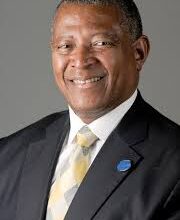Shortage prompts giving
Published 11:59 pm Monday, July 14, 2008
Friday, 2-7 p.m., Selma Mall center court by the fountain
July 23, 3-8 p.m., Elkdale Baptist Church Adult Building
Aug. 14, 2-7 p.m., Church Street United Methodist Church
Aug. 15, 8:30 a.m.- 1:30 p.m., Alabama Department of Human Resources, Selma
Aug. 27, 3 p.m.-8 p.m., Northside Baptist Church Adult Classroom
People rolled up their sleeves and gave the gift of life Monday in an American Red Cross roundup held at the Carl C. Morgan Convention Center.
Greg Cherry and Vivian Williams gave.
“We’ve been giving blood for about 30 years,” she said.
Sixteen people signed up to donate blood after only an hour. That’s a good sign.
Summer is a difficult time for the blood supply.
Evan Duffy , senior communications specialist for the Alabama and Central Gulf Coast Blood Services Region, points out that 21 percent of the blood supply in the area comes from high school and college students.
“Of course, when those students aren’t in class,” he said, “we often lose them over the summer, thus putting a pinch on things from the supply side. Of course, we also lose donors who may be on vacation at the time of their regularly scheduled church or community blood drives, which further decreases the number of units we collect.”
Demand increases in the summer because of vacations.
“With increased vacation travel comes an increase in the frequency of traffic accidents,” Duffy said. “Also, those engaged in outdoor activity are at a higher risk for injuries that may require blood transfusion. These factors together combine to create the traditional summer shortage.”
Currently, the area has a shortage of type O blood, which is the most versatile of all the blood types.
There are two rhesus factors or Rh: positive and negative, meaning the blood group’s antigen or a substance that causes the immune system to make a specific immune response. So, people with type O blood are either O positive or O negative.
Duffy explains the significance: “O positive is critical to the blood supply because the largest segment of the population has O positive blood. It is also a universal positive match, meaning that anyone with a positive blood type, regardless of ‘the letter,’ can receive O positive blood in a pinch. O negative blood is the universal donor type, meaning anyone can receive an o negative transfusion regardless of blood type.”
In emergency settings this become critical when health care providers don’t have time to test the type of a patient’s blood.
“Together, O positive and O negative represent 51 percent of the blood that is requested by hospitals across the region, thus driving an increased demand for type O blood,” Duffy said.
And most of the blood, 99.9 percent, taken at Monday’s blood drive will remain in the area.
The Central Gulf Coast Region includes all of Alabama, the Florida Panhandle and the Mississippi Gulf Coast. The region is a net importer of blood and blood products, meaning that in this area, the Red Cross must import blood from other regions of the organization just to meet the current demand, said Duffy.
“There is a chance that a rare unit may be sent where it is needed to save lives,” he added, “but for the most part almost all blood collected in the region is used by hospitals in the region.”





